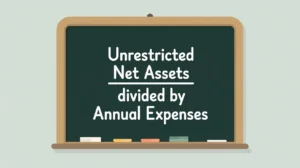Importance of Grant Agreement / Award Letter
The grant agreement or award letter formalizes the relationship between a donor and a nonprofit, setting the legal and financial framework for the use of funds. This matters because clarity at the outset prevents misunderstandings, ensures compliance, and protects both donor intent and organizational integrity. For nonprofits in social innovation and international development, the grant agreement is especially critical given the scale of funding, cross-border regulations, and complex reporting requirements. Boards and leadership value these documents as they define accountability and safeguard mission alignment.
Definition and Features
A grant agreement or award letter is defined as the official document issued by a donor or funder that specifies the terms and conditions of a grant. Key features include:
- Scope of Funding: purpose, activities, and outcomes the grant will support.
- Duration: start and end dates of the grant period.
- Financial Terms: approved budget, disbursement schedule, and allowable costs.
- Compliance Requirements: reporting obligations, audit provisions, and restrictions.
Grant agreements differ from informal pledges because they carry legal and financial obligations for both the donor and recipient.
How This Works in Practice
In practice, nonprofits negotiate and sign grant agreements before accessing funds. For example, a global health nonprofit may receive an award letter from a foundation committing $5 million over three years, contingent on achieving milestones. Finance teams set up project codes and cost centers aligned with the grant terms, while program staff plan activities within the approved scope. Boards often review large or high-risk agreements to ensure compliance with legal and ethical standards.
Implications for Social Innovation
For nonprofits in social innovation and international development, grant agreements ensure transparency and trust between funders and implementers. Transparent reporting reduces information asymmetry by showing stakeholders how commitments are structured and honored. Donors benefit from knowing their funds are being stewarded responsibly, while nonprofits gain credibility by adhering to agreed terms. By managing grant agreements carefully, organizations strengthen donor relationships, minimize compliance risks, and reinforce the stability needed to drive systemic change.







